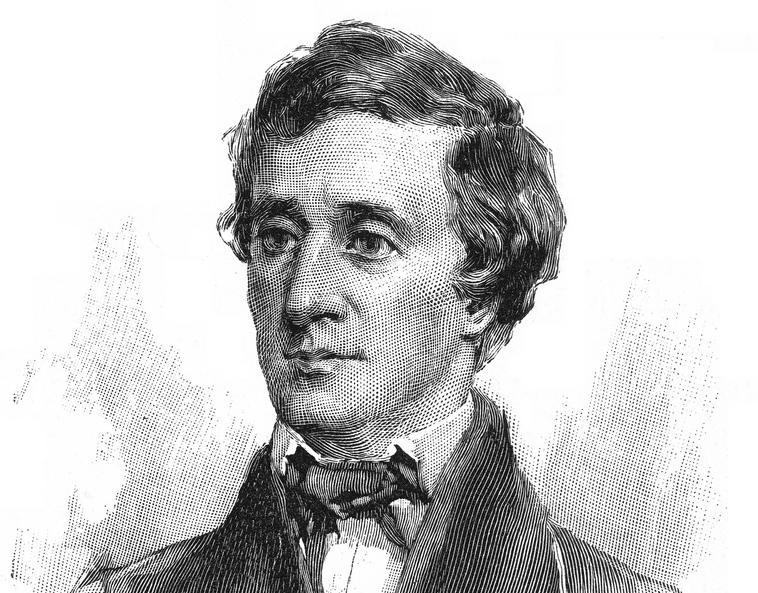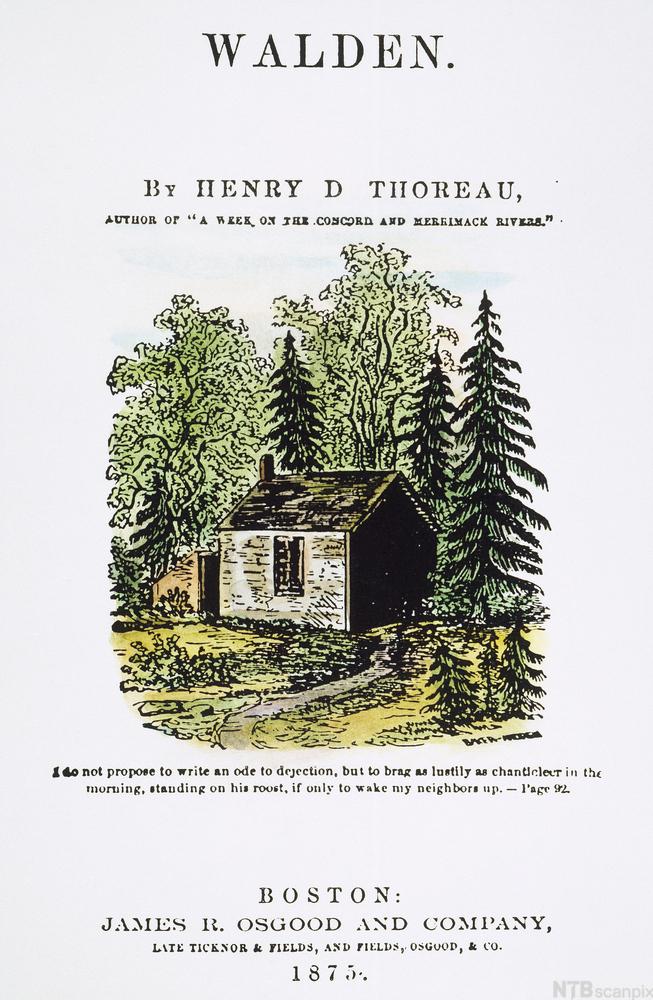Walden by Henry David Thoreau

Towards the mid-19th century, some American writers turned to nature to seek an understanding of man’s existence in harmony with the elements. These writers were called the New England Transcendentalists. Henry David Thoreau was one of the most prominent representatives of this literary movement.
Henry David Thoreau (1817–1862) was a man of many talents and strong convictions; he was an activist who stood up for what he believed in, and he protested what he saw as social and human injustice. When he refused to pay taxes because the state he lived in supported slavery, he was arrested. His writings about civil disobedience inspired such legendary activists as Mahatma Ghandi and Martin Luther King Jr. In 1846, Thoreau withdrew from society to build a cabin at Walden Lake, close to his home town in Massachusetts, to live in harmony with nature. His idea was that nature could teach him the essentials of a fulfilled life. He lived there for two years and two months, after which he published Walden (1854) describing his experiences. Walden became a classic within philosophy: it focused on labour, leisure, and self-reliance. Below, you can read an excerpt from the book.
Near the end of March, 1845, I borrowed an axe and went down to the woods by Walden Pond, nearest to where I intended to build my house, and began to cut down some tall, arrowy white pines, still in their youth, for timber. It is difficult to begin without borrowing, but perhaps it is the most generous course thus to permit your fellow-men to have an interest in your enterprise. The owner of the axe, as he released his hold on it, said that it was the apple of his eye; but I returned it sharper than I received it. It was a pleasant hillside where I worked, covered with pine woods, through which I looked out on the pond, and a small open field in the woods where pines and hickories were springing up. The ice in the pond was not yet dissolved, though there were some open spaces, and it was all dark colored and saturated with water. There were some slight flurries of snow during the days that I worked there; but for the most part when I came out on to the railroad, on my way home, its yellow sand heap stretched away gleaming in the hazy atmosphere, and the rails shone in the spring sun, and I heard the lark and pewee and other birds already come to commence another year with us. They were pleasant spring days, in which the winter of man’s discontent was thawing as well as the earth, and the life that had lain torpid began to stretch itself. One day, when my axe had come off and I had cut a green hickory for a wedge, driving it with a stone, and had placed the whole to soak in a pond hole in order to swell the wood, I saw a striped snake run into the water, and he lay on the bottom, apparently without inconvenience, as long as I stayed there, or more than a quarter of an hour; perhaps because he had not yet fairly come out of the torpid state. It appeared to me that for a like reason men remain in their present low and primitive condition; but if they should feel the influence of the spring of springs arousing them, they would of necessity rise to a higher and more ethereal life. I had previously seen the snakes in frosty mornings in my path with portions of their bodies still numb and inflexible, waiting for the sun to thaw them. On the 1st of April it rained and melted the ice, and in the early part of the day, which was very foggy, I heard a stray goose groping about over the pond and cackling as if lost, or like the spirit of the fog.
So I went on for some days cutting and hewing timber, and also studs and rafters, all with my narrow axe, not having many communicable or scholar-like thoughts, singing to myself,—
Men say they know many things;
But lo! they have taken wings,—
The arts and sciences,
And a thousand appliances;
The wind that blows
Is all that any body knows.

I hewed the main timbers six inches square, most of the studs on two sides only, and the rafters and floor timbers on one side, leaving the rest of the bark on, so that they were just as straight and much stronger than sawed ones. Each stick was carefully mortised or tenoned by its stump, for I had borrowed other tools by this time. My days in the woods were not very long ones; yet I usually carried my dinner of bread and butter, and read the newspaper in which it was wrapped, at noon, sitting amid the green pine boughs which I had cut off, and to my bread was imparted some of their fragrance, for my hands were covered with a thick coat of pitch. Before I had done I was more the friend than the foe of the pine tree, though I had cut down some of them, having become better acquainted with it. Sometimes a rambler in the wood was attracted by the sound of my axe, and we chatted pleasantly over the chips which I had made.ted with it. Sometimes a rambler in the wood was attracted by the sound of my axe, and we chatted pleasantly over the chips which I had made.
Relatert innhold
Tasks for the text Walden by Henry David Thoreau.